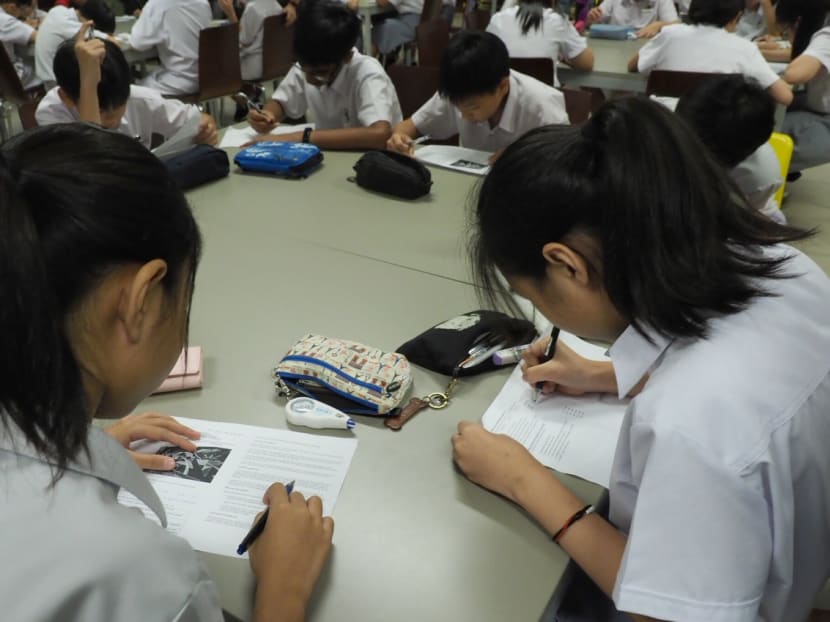MPs double down on calls to abolish ‘sacred cow’ of streaming in secondary schools
SINGAPORE — Four Members of Parliament (MPs) called for an end to streaming in secondary schools, with a couple of them drawing on their past experiences as teachers to talk about how the practice affects students' self-esteem and limits their potential.

Four Members of Parliament called for an end to streaming in secondary schools during the parliamentary debate on the budget for the Ministry of Education on Monday (March 4).
SINGAPORE — Four Members of Parliament (MPs) called for an end to streaming in secondary schools, with a couple of them drawing on their past experiences as teachers to talk about how the practice affects students' self-esteem and limits their potential.
This was during the parliamentary debate on the budget for the Ministry of Education (MOE) on Monday (March 4).
Their calls came after Mr Louis Ng, MP for Nee Soon Group Representation Constituency (GRC), first raised the matter in Parliament last week, saying that while the streaming system in schools caters to students’ strengths, it also contributes to widening the social divide in society.
Here is a recap of what they said in arguing to slay this “sacred cow” in the education system:
BROKE HER HEART
Dr Intan Azura Mokhtar, MP for Ang Mo Kio GRC, was a form teacher and mathematics teacher of a Secondary 3 Normal (Technical) class in 1999 and taught the pupils for two years.
She said: “I faced a lot of difficulty in getting my students to take an interest in algebra or trigonometry. Between my cajoling and scolding, one of my students said to me in exasperation, ‘Cher, we cannot do maths. We’re Normal Tech’.
READ ALSO
“That broke my heart. Not because they really could not do mathematics, but because they believed they could not. To this day, those words are still so vivid.
“(Streaming) has served its purpose, but it is time for us to move on and recognise that academic streaming places self-limiting beliefs on students who think they are only as good as the stream they are in.”
A SENSE OF RESIGNATION AND DEFEAT
Mr Ang Wei Neng, MP for Jurong GRC worked as a relief teacher at Bukit Batok Secondary School 30 years ago when he was an undergraduate.
He said: “I taught students from both the Normal and Express streams and (they) were using the same textbook. However, certain segments of the textbook were not meant for the Normal stream students.
“As a young and idealistic teacher at that time, I tried to interest the students in science no matter what streams they were from. Even when certain sections were not supposed to be taught to the Normal stream students, I continued to teach them as it was… interesting.
“However, the Normal stream students were quick to dismiss most of what was in their textbooks. They said, ‘We are taking the reduced syllabus, no need to learn’. There was a sense of resigned acceptance and defeat. That left a deep impression on me.”
LOSE MOTIVATION
Mr Charles Chong, MP for Punggol East, said: “Streaming can have a negative impact and can create a ‘class divide’ between those whom our education system deems to be academically able and those who are less so.
READ ALSO
“Over the years, we have seen the impact of streaming on students’ self-esteem. Some students in the Normal streams lose motivation over time, thinking that the label of ‘Normal’ means that they cannot excel or even improve. Now that is plainly wrong.”
THERE ARE ALTERNATIVES
Ms Denise Phua, MP for Jalan Besar GRC, said that doing away with streaming does not mean “putting everyone in the same class for every subject” and ignoring the need for each student to learn at their own pace and method.
“One good solution is subject-based banding and (the) MOE has good results to show from it.
“I recommend that streaming be abolished and replaced by subject-based banding for both academic and non-academic subjects.”









